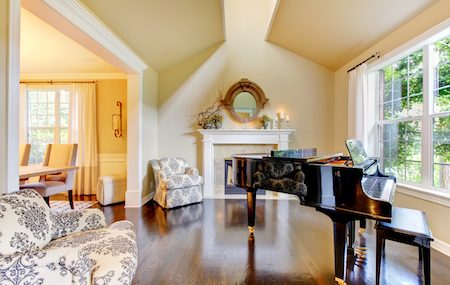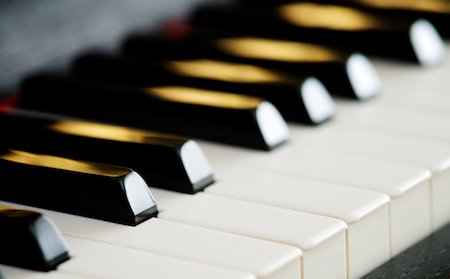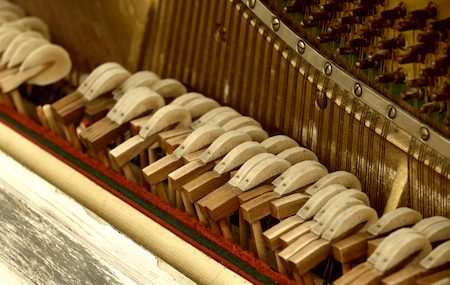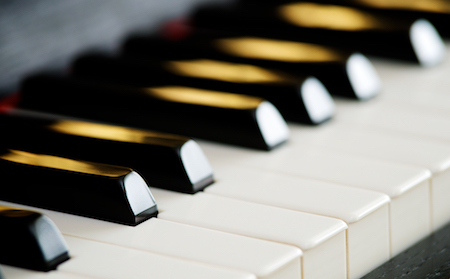When people decide to purchase a grand piano, there are many factors to consider before you make your final selection. You might start the process by looking for a specific make or model. But there are also other decisions, such as the size of the grand piano available.
Each size is created for specific applications in mind. A baby grand piano will be different from a concert grand piano. Here are a few things you should consider.
The difference between uprights and grands
There are two different types of acoustic pianos: uprights and grand. Uprights – also called vertical pianos – are built with the strings positioned vertically. This means the hammers are positioned to move horizontally, using spring action to control the movement onto the strings. An upright is more compact than a grand, which is why many homeowners prefer them if they are limited on space. They can be tucked up against a wall and allow a family to bring it into their home even with the tightest of spaces.
Horizontal pianos – grand pianos – are stretched horizontally with the strings stretching out from the keyboard. When a key is struck, the hammer hits the string from underneath, and returns to its resting position by use of gravity. It doesn’t use springs like the upright, giving a purer sound in the process. That’s why you find grand pianos used in most concert settings; the tone is richer, more vibrant.
What is a baby grand piano?
If you start looking for a grand piano, you’ll notice a variety of designations come along with the classification. While manufacturers do have some say in how they classify a grand piano, in general, the size determines how a piano is listed:
Petit grand – this is the smallest of the grand pianos. They are typically under 5 feet in length and work great in a room where size is an issue.
Baby grand – this is one of the most popular grand pianos on the market. They offer excellent tonal quality while still being sized right for most modern homes. You’ll find them in the 5 foot to 5 feet 5 inches.
Classic grand – these range from around 5 feet 6 inches to 5 feet 8 inches.
Professional grand – these range from around 5 feet 9 inches to 6 feet 2 inches. They are often referred to as a full grand piano, and you’ll find them in music rooms around the world.
Living room grand – also known as a parlor grand, these measure from 6 feet 3 inches to 6 feet 10 inches, and make a striking conversational piece in any room.
Semi-concert grand – these are popular in music halls and concert venues because of their rich sound. They are between 6 feet 11 inches and 7 feet 8 inches.
Concert grand – anything larger than 7 feet 8 inches is referred to as a concert grand. They are commonly used in orchestras and by professional musicians.
Size doesn’t matter when selecting a piano. Pay attention to sound first. A baby grand piano is often the perfect choice for a home because it offers a rich voice with the most compact size.
How can we help you with your piano selection today?











